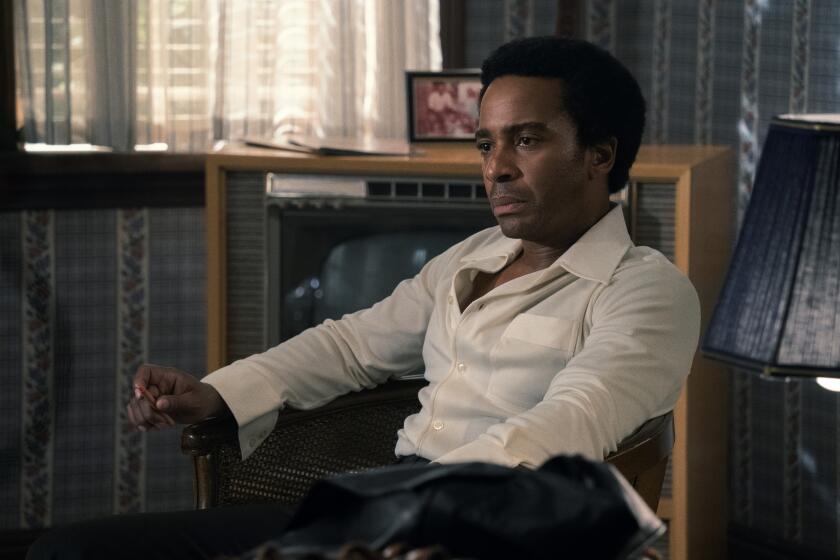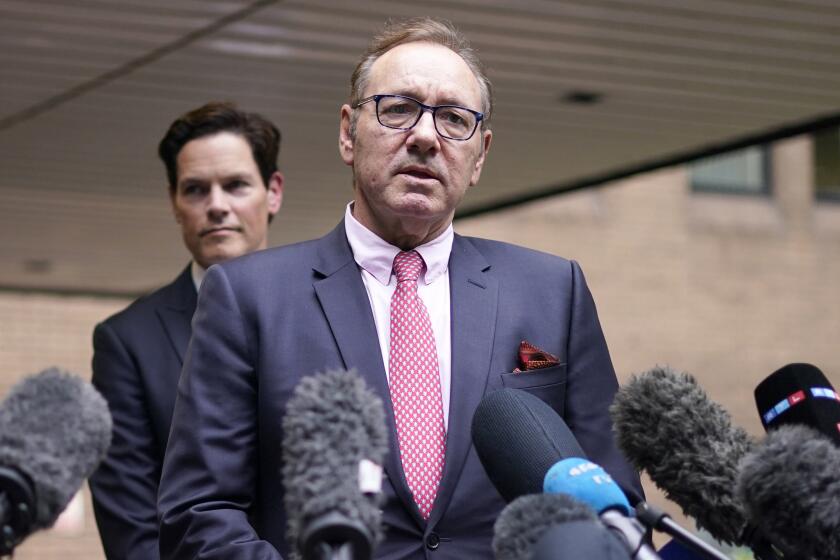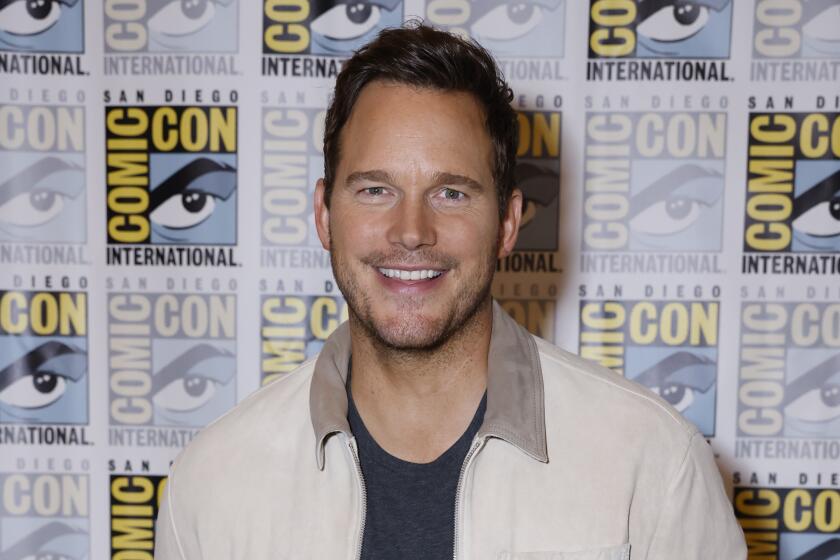Courses Help Students Master Entertainment Law
The lawyers’ glares and rolling eyes belied the fact that the passionate negotiations for a songwriter’s new contract were only a teaching exercise.
The would-be contract required him to record and release 12 recordings on a major label each year.
“Impossible,” said his lawyer, Chris Crosby, scratching out paragraphs. “And this 10% administration fee? I don’t think so.”
But he looked mollified when Jeff Brabec, representing Westmoreland Music Co., grudgingly agreed to delete the fee, asking in return that Crosby accede to the recording schedule. Then Brabec turned to his audience, a group of 20 law students furiously scribbling notes onto copies of the contract, and grinned.
“A lot of times I put a clause like that in just so I can take it out and put in something else and still look like the good guy,” he said. “That’s what you’re dealing with in this business--snakes like me.”
As the class laughed, the two shook hands and agreed on the deal. The contract and the artist were fictional, but Crosby and Brabec were real industry professionals attending a Southwestern Law School class as guests of professor Michael Perlstein.
Mock contract negotiations like that during a law school class on music publishing are part of Southwestern’s effort to corner the market in entertainment law education.
This fall the university will start offering the country’s first advanced degree in entertainment law for law school graduates, according to the American Bar Assn.
Students in law school have limited slots available for electives, if their schools even offer any in the fields they’re interested in, but LL.M. (master of laws) programs provide opportunities to take nearly a dozen specialized classes. In Southwestern’s new program, students will be able to enroll in such courses as sports law, entertainment industry labor law, defamation and the music publishing class.
The new program will be Southwestern’s first LL.M., although other law schools offer masters in such subjects as taxation--the most popular--finance, energy, agriculture and ocean law.
Lisa Landis will be among the 15 members of Southwestern’s first LL.M. class. Currently a partner at a media research firm, she graduated from Southwestern in 1988.
“Those courses weren’t even offered when I was in law school,” said Landis, 39, who hopes to parlay the degree into a position at a newspaper or television network. “Now I have the opportunity to take all of them and get a jump start in my career.”
At a recent summer session of the music publishing course, Brabec and Cosby negotiated two mock contracts: one to sign an artist and another to purchase rights to a song. Brabec is the business affairs vice president at Chrysalis Music Group USA, which represents artists such as Paul Anka and Outkast, and Cosby is a Century City attorney whose firm’s clients have included Virgin Records and Bob Dylan.
Learning about industry customs allows lawyers to be productive from the beginning of their careers rather than trying to cram on terminology and case law, Perlstein said.
“We bring the day-to-day deal-making apparatus that you don’t get in a course in pure copyright law,” said Perlstein, a partner in the same Century City entertainment firm as Cosby. “My course is intended to talk the talk.”
Several of those enrolled in the class are interested in eventually pursuing master’s degrees.
Getting experience with industry practices was the goal for Howard University law student Willie Thomas when he came for the summer to Southwestern to take Perlstein’s class and serve as an intern at an organization for black sports agents. After finishing at Howard next year, he said, he might return for the LL.M. program.
Like the other students in Perlstein’s class, he said the course is teaching him what a music lawyer deals with on a daily basis: looking over contracts, understanding the negotiation process and trying to figure out what’s most advantageous for his clients.
Thomas said the class has taken him far beyond what his law school can provide.
“A lot of law schools don’t take entertainment law seriously,” said Thomas, 23. “When you’re out in L.A., people understand that this is a billion-dollar industry.”
Like Thomas, Marcus Hunt is taking the music publishing course and will consider the LL.M. program once he graduates in a year from law school at Samford University in Birmingham, Ala.
“I really want to have the biggest advantage over anyone who’s just coming out of law school,” said Hunt, 27. “Something that would set me way apart from anybody else is to have a master’s in entertainment law.”
Many of the 30 LL.M. applicants said the prospect of strengthening their credentials is driving their interest in the program, said Anne Wilson, Southwestern’s admissions director.
“Jobs are harder to get in this economy, so people in general are looking for a higher degree” than a general law degree, she said.
The degree is designed to be finished in one year, if classes are taken full time, and about two otherwise.
Santa Monica attorney Charles B. Rosenberg, who will teach entertainment law this fall at Pepperdine University’s law school, said he doesn’t think an advanced entertainment law degree is necessary if law students take classic industry courses such as intellectual property. However, he added that the Southwestern program should improve students’ understanding of business practices in the field.
“The thing that most law school courses don’t really teach a lot about is how deals are really made,” said Rosenberg, the technical legal advisor for the TV series “The Practice.” “An LL.M. program could really get into the nuts and bolts of the industry.”
He added that an entertainment law program may follow the evolution of tax law degrees, which were once nonexistent and now are offered at about 25 law schools in the United States.
“Presumably the proliferation of those programs has raised the floor for the kind of education you need for a good entry-level tax job,” Rosenberg said. “It may turn out that entertainment companies look more favorably on those who don’t have to start learning about the industry from scratch.”
When Brabec of Chrysalis got his first job, his industry education consisted solely of reading files he found around the office.
“Working in the music industry is a dream for many people, but they walk into their first jobs knowing nothing but the basics,” he said. “Schools should at least include something about the real life you’re going to face when you leave school.”
More to Read
The biggest entertainment stories
Get our big stories about Hollywood, film, television, music, arts, culture and more right in your inbox as soon as they publish.
You may occasionally receive promotional content from the Los Angeles Times.






